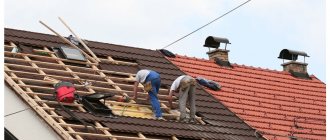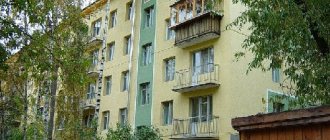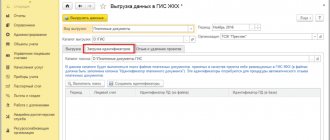Federal Law 399 on major repairs of apartment buildings: main provisions, content
This regulatory legal act is aimed at introducing changes to the housing legislation of the Russian Federation. It indicates the formation of a mandatory regional fund to receive funds for the overhaul of residential apartment buildings.
Management companies that are legal entities or owners of buildings, structures or other real estate can form a fund and carry out operations on it.
The obligation to maintain the premises in proper condition is indicated by an act that can be created by both the residents and the management company.
In 2021, the law has the following structure: a preamble and three chapters. The main innovations are those that establish provisions for mandatory informing the population about the capital repair fund, how it is formed and what it consists of.
Mortgage credit lending
Not all citizens have the opportunity to buy an apartment with their own money. Many people today turn to banks for a mortgage. At the same time, an unencumbered certificate of title to the property is not issued for such housing until the debt is fully repaid. Accordingly, the question arises of who should make contributions for major repairs. Judicial practice does not give an unambiguous answer to this question. Some authorities believe that charging fees is illegal, others take the opposite position. According to a number of experts, the second option is quite logical, in which the deduction of contributions is the responsibility of the owners. In this case, in fact, citizens who have a loan use the apartment - the bank only holds it as collateral and does not operate it. The burden of maintaining the living space thus falls on the acquirer. However, this position is not enshrined in law.
Law 690 120 on capital repairs
This is a regional regulatory legal act that establishes the provisions on major repairs in force in St. Petersburg. This law specifies exactly how this type of repair takes place in the city, how the fund is formed, what money is collected and from whom, and how it is distributed.
It is indicated what exactly is included in the regional program:
- Addresses of apartment buildings.
- When were they put into operation?
- Types of houses.
- Area of houses.
- Information about the owners.
- Other necessary information.
The order of major repairs must also be established. It is determined by a number of different factors, which are also established at the regional level.
Recognition of the house as unsafe and seizure
According to the provisions of the Housing Code, contributions for major repairs are not paid by the owners of apartments in a building subject to demolition. In such a situation, the regional operator directs funds from the fund to carry out relevant activities with the house. Citizens are also exempt from the obligation to pay for major repairs when a regulatory act is adopted on the seizure of the site on which the structure is located for municipal/state needs, for each premises, except for those that belong by right of ownership to a region, municipality or the Russian Federation. In this case, the regional fund must return the funds they contributed to the apartment owners. In addition, citizens can exercise the right to receive the redemption value of repossessed housing.
What other laws talk about major repairs and the essence of these laws?
In addition to these laws, provisions on overhaul are enshrined in a number of other regulatory legal acts:
- Housing Code of the Russian Federation.
- On the procedure for determining the minimum amount of equity financing for capital repairs of apartment buildings.
- Town Planning Code of the Russian Federation, etc.
All these laws define and disclose certain essential provisions in situations of paying money for repairs, on benefits, the regional operator and the organization of activities in this area.
Account owner
As him, according to Art. 175 LCD, can be a homeowners association, which manages an apartment building and is formed by the owners in one or more apartment buildings. Moreover, the total number of apartments in the latter should not exceed 30 if the buildings are located on areas that have a common border, utilities and other infrastructure components intended for general use. If the powers of the management company go beyond the established limits, then an account should be opened with a regional operator or the HOA should be divided into several separate ones.
Links to full texts of laws
download Federal Law No. 399 Housing Code on capital repairs of apartment buildings, as amended, here. ⇐
Federal Law No. 271 on capital repairs, as amended. ⇐
Download Federal Law No. 185 on the Fund for Assistance to Housing and Communal Services Reform, as amended, from the link. ⇐
To download Government Resolution No. 690 as amended, click here. ⇐
Thus, the owners of apartment buildings are obliged to pay for major repairs in accordance with presidential decrees, orders of executive authorities, with the latest current and complete amendments. Failure to pay the fee may result in penalties in the form of penalties.
What they check
The main object of state control (supervision) and municipal control under Law No. 248-FZ is the mandatory requirements established by law. Inspectors act to prevent, as well as identify and suppress violations of such requirements.
Also see “New approach to inspections from July 1, 2021: main changes.”
Question 4. Who decides which territories will be “comprehensively developed”?
Depending on which territories fall into the project for integrated development of territories, a decision on integrated development is made (according to Part 2 of Article 66 of the Civil Code of the Russian Federation):
- Government of the Russian Federation - for land and real estate in federal ownership; or if the decision is implemented within the framework of an investment project at the expense of the federal budget (except for the resettlement of emergency housing); or if the decision on the integrated development of territories will be implemented by a legal entity designated by the Russian Federation.
- The highest executive body of the constituent entity of the Russian Federation - if the project will be implemented with the involvement of funds from the budget of the constituent entity of the Russian Federation; or if the decision will be implemented by a legal entity defined by a constituent entity of the Russian Federation, or if the comprehensively developed territory is located on the territory of two or more municipalities.
- The head of the local administration in all other cases.
Protection of rights during inspections
The protection of the rights of legal entities and individual entrepreneurs under state control (supervision) and municipal control in Russia is regulated by Federal Law No. 294-FZ of December 26, 2008. But soon - from January 1, 2025 - it will lose force. Art. speaks about this. 85 of the Companion Law of June 11, 2021 No. 170-FZ (to Law No. 248-FZ).
Until that date, its provisions apply only to:
- 15 types of control and supervision from those not included in the subject of regulation of Law No. 248-FZ (these are some types of licensing control, antimonopoly, SRO, migration, state defense order, drug control, etc.);
- notifications about the start of certain types of business activities.
Also see “Main changes in the sphere of state control and supervision from July 1, 2021: review of the companion law.”
Question 3. What types of integrated development of the territory have legislators come up with?
Legislators have come up with four types of integrated development of a territory, which depend on what is actually located in a given territory.
This is (according to Part 1 of Article 65 of the Civil Code of the Russian Federation):
- comprehensive development of residential areas,
- comprehensive development of non-residential development areas,
- comprehensive development of undeveloped territory,
- comprehensive development of the territory at the initiative of land and real estate rights holders.
For obvious reasons, further I will write only about the integrated development of residential areas, so as not to enlarge the already large text and not to introduce unnecessary confusion into it.
What are the consequences of incorrect use of cash register equipment in 2021?
For failure to use a new cash register, an entrepreneur may be fined 25–50% of the amount passed through the cash register, but not less than 10,000 rubles. Organizations - 75–100%, but not less than 30,000 rubles. For using a cash register that does not comply with the requirements of the law, an individual entrepreneur faces a fine of up to 3,000 rubles, and a company - up to 10,000 rubles. In the event of a repeated violation, if the settlement amount is more than 1 million rubles, the activities of the entrepreneur or organization may be suspended for up to 90 days.
Amendments have been made to the Code of Administrative Violations - now they will also punish for fictitious cash register checks. They will be able to recover up to 40,000 rubles from companies, and up to 10,000 rubles from individual entrepreneurs. The Federal Tax Service will also be able to fine organizations up to 100,000 rubles, and entrepreneurs up to 50,000 rubles for incorrectly indicated goods on a receipt or untimely transmission of fiscal data. If an individual entrepreneur or company is caught violating it again, and the settlement amount is more than 1 million rubles, the fine will range from 800,000 to 1 million rubles.
In addition, tax officials will have the right to block the operation of cash registers that were used during the violation. This will be possible in the presence of two witnesses or using video recording.
What to do?
For some beneficiaries, the transition to the new work order ended on July 1, 2021, but for most entrepreneurs it has already begun on July 1, 2021. Therefore, you need to buy equipment now. There is no longer any place to put it off: keep in mind that the process may take a long time - the required cash register may not be available, you will have to wait for delivery, registering the cash register will also take some time. And then you will also need to set up a cash register, select and install a cash register program, check all this for compatibility and learn how to work.
The transition will be much easier and faster with a ready-made solution. We offer a turnkey online cash register: in one set - a cash register with a fiscal drive, a subscription to the OFD and a convenient cash register program. There is no need to wait for delivery - all equipment is in stock. We will help you set up everything and teach you how to use the program. The solution is proven and reliable: last year it was already tested by our users, who were part of the first wave of implementation of online cash registers.
Experts predict a shortage of fiscal drives on the market, which will lead to inflated prices for them. According to the Chamber of Commerce and Industry of the Russian Federation, today FNs are produced much less than cash registers, and delays in deliveries reach three months.
So start the transition now—without waiting until the deadline. And MySklad will help you save time, nerves and money. The cost of our Economy set is covered by tax deduction. And our cash register program is compatible with new cash register models, does not require installation or expensive implementation, and is suitable for automating any number of retail outlets.
Reliable with us! MySklad is an official participant in the first experiment with online cash registers: a pilot project that was carried out back in 2015. Then, for the first time, the first few thousand cash registers were equipped with a module that transmits data to the Federal Tax Service. The project was considered successful and was implemented throughout Russia.
Try MyWarehouse for free: after registering with the service, we will open a trial period for you for 14 days, and a personal manager will answer all your questions.
Features of application
Law No. 248-FZ gave the Government of the Russian Federation the right to establish the specifics of control and supervision in a number of territories. Namely:
- special economic zones (SEZ);
- innovative;
- free economic zones;
- Crimea and the city of Sevastopol;
- territories of rapid socio-economic development;
- free port of Vladivostok;
- in the Arctic zone;
- "Sirius".
Corresponding changes have been made to the laws on these territories.








